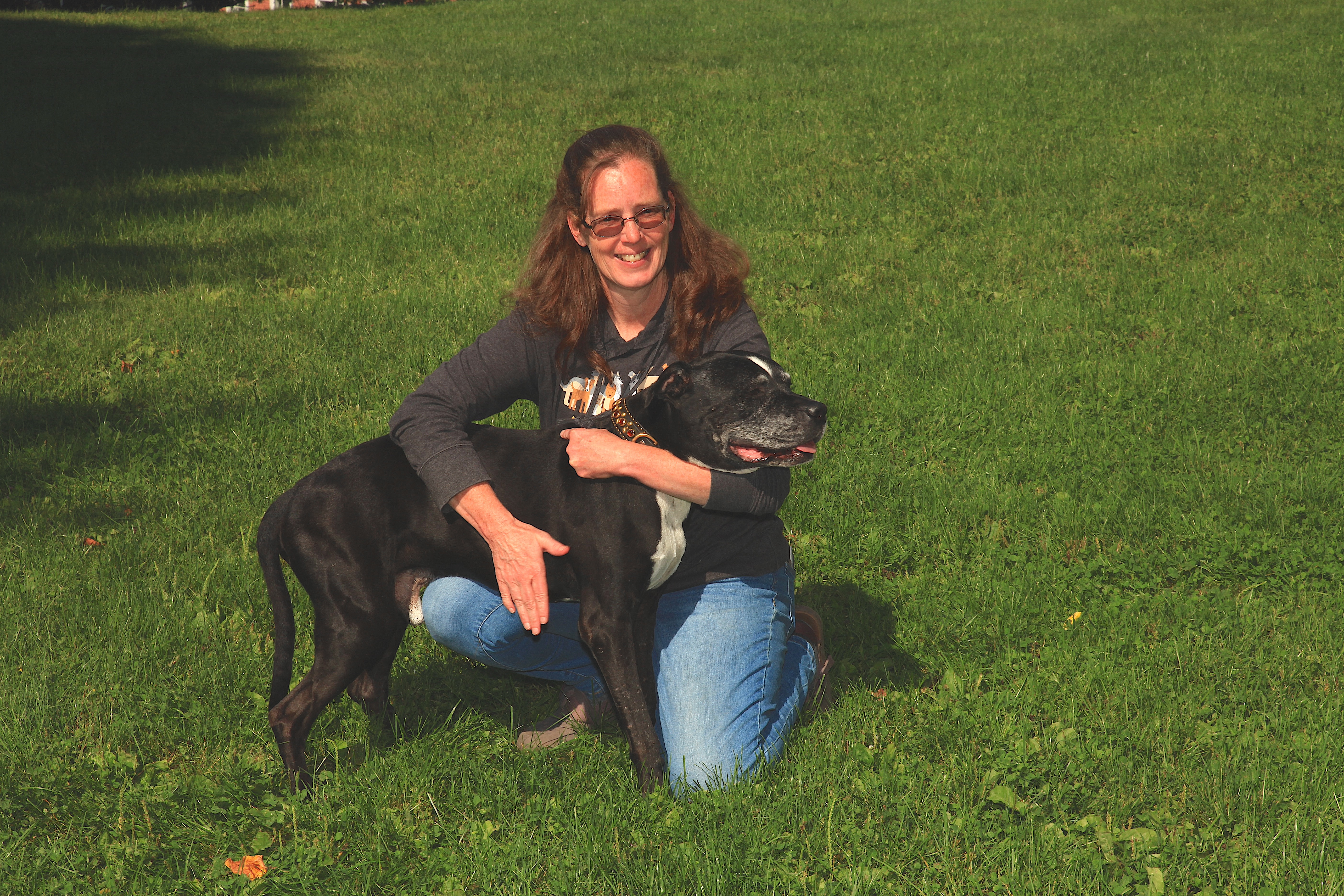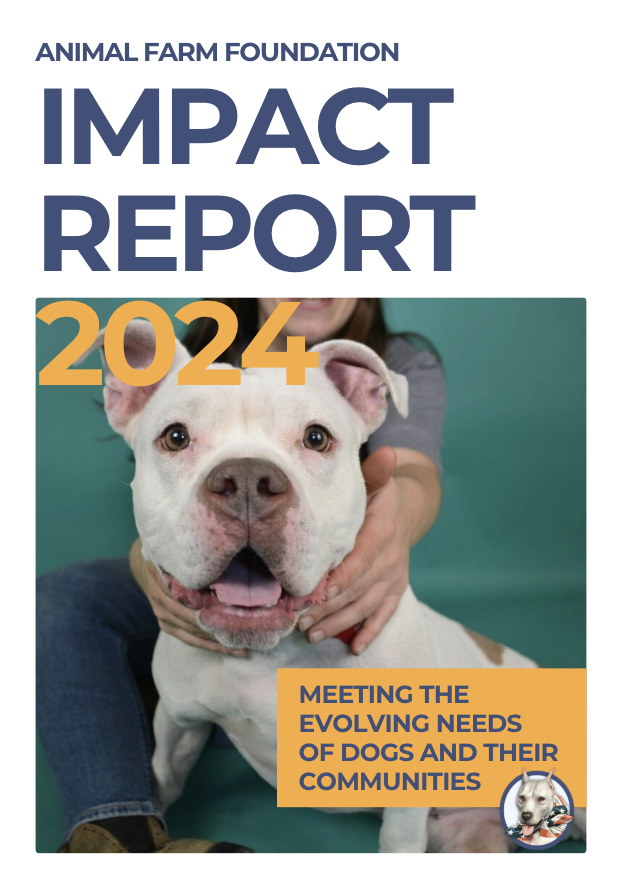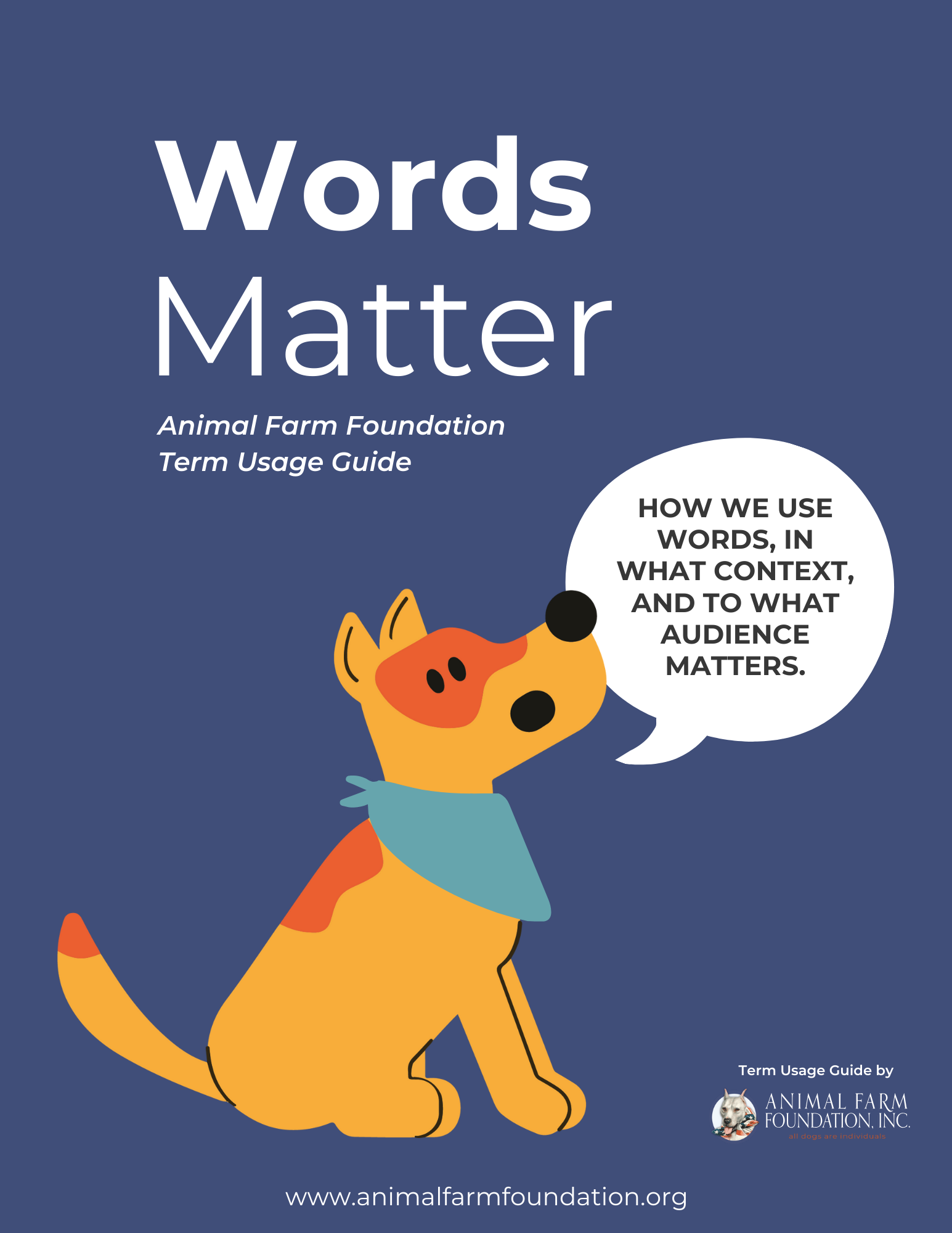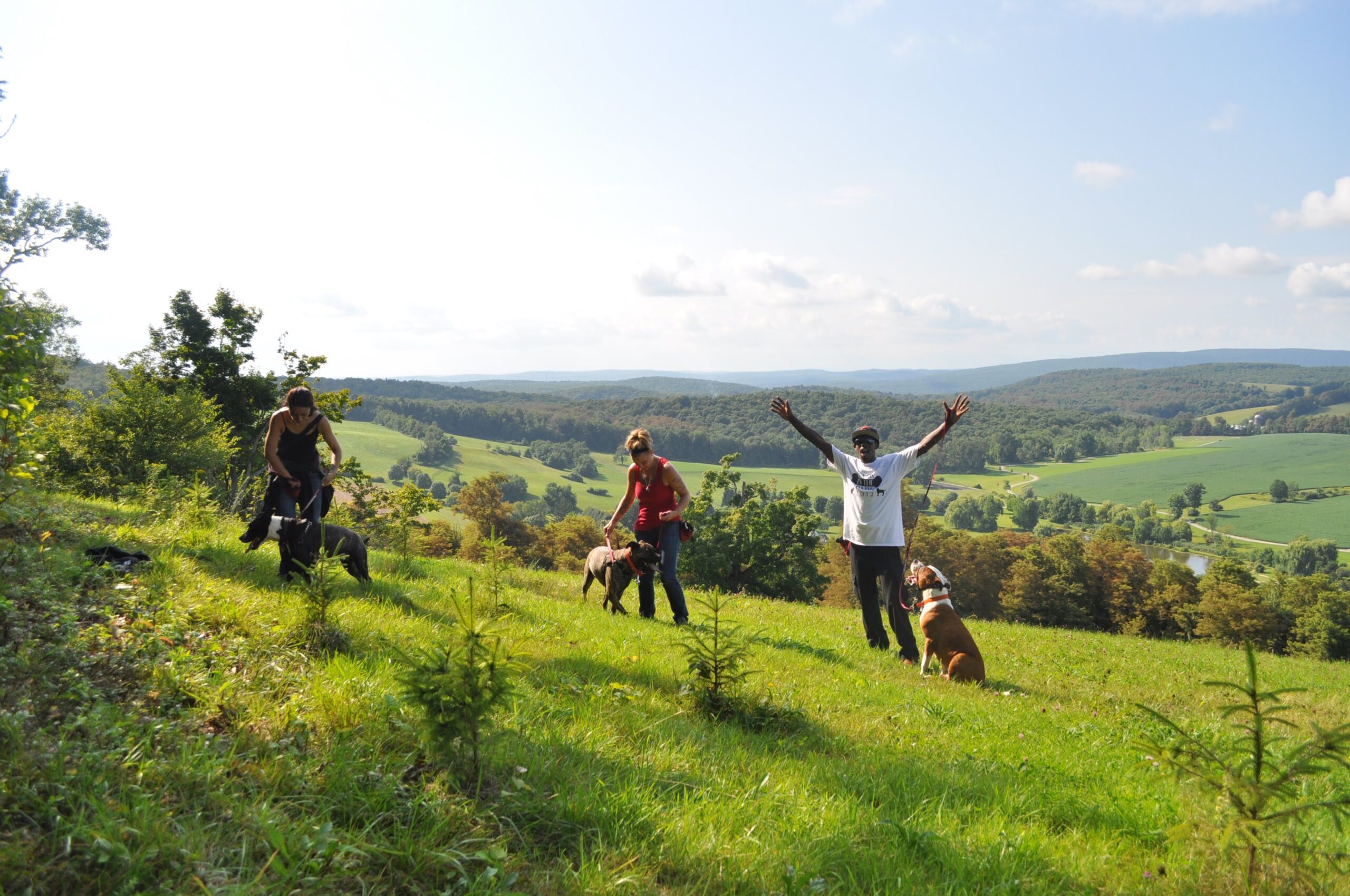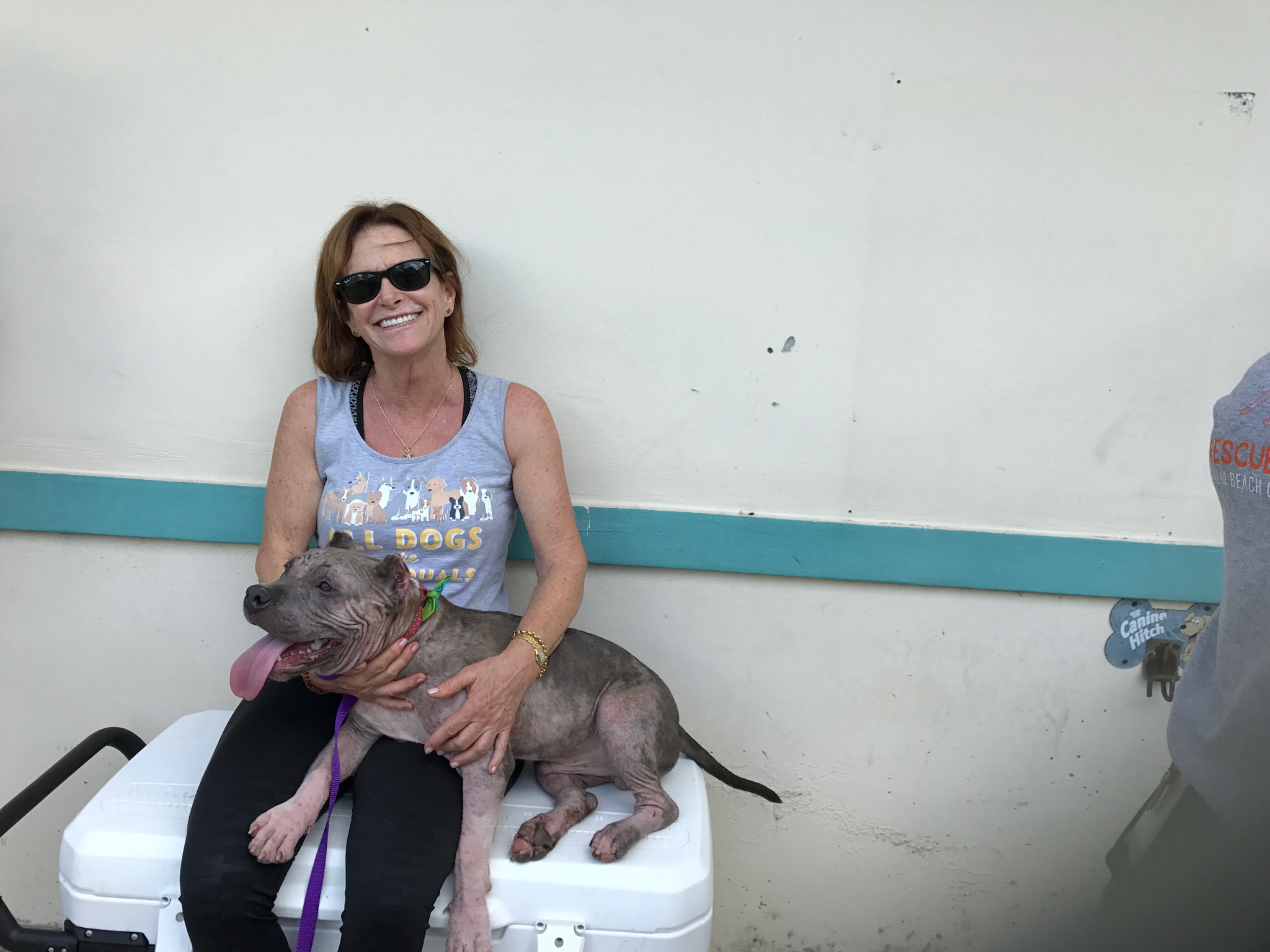Dogs Playing for Life is an organization close to our hearts, and not merely because they are one of our grantees. The non-profit mentors staff and volunteers at shelters across the country on playgroup enrichment.

To DPFL – and to AFF – playgroups are as important to a dog’s wellness as feeding, medicating, and cleaning. That might sound weird at first, but think about your own dog. You likely know that socialization is one of the first steps to a happy, well-rounded pup.
This is even more important for shelter dogs. When they enter a shelter or rescue, a shelter dog’s personality isn’t always readily apparent. This makes it difficult for shelter staff to see the dog’s true individual personality.

That was the case when rescue workers in Santa Barbara saved 24 dogs from a home that was so covered in urine and feces the floor was beginning to buckle.
Sarah Silva from Santa Barbara County Animal Control said:
“It was no longer safe. The drywall had been chewed off most of the walls. The smell was indescribable.”
The owner relinquished the dogs to county animal services. Emily told us that they still don’t have a full grasp of the backstory of these animals. Twenty-one of the dogs were all descendants of two original dogs, but no one knows which ones were the original. There was one additional dog the owner took in as a stray.

Emily gave us more details about the living situation:
“They were housed in various rooms, separated by gender, but all living inside and as far as we know, never going outdoors. When they were seized many were not able to be touched or handled, and upon entering they scattered.”
Through lots of treats, attention, and even reading time, volunteers made progress with the dogs, but that progress moved even faster when a DPFL instructor stepped in to help.

Santa Barbara County Animal Service is well-versed on playgroups. DPFL hosted an AFF sponsored seminar there in 2015. But, Emily told us that this case was much too large and complex for them to handle on their own.
We asked Emily what’s the first step they take when dealing with dogs who have never been socialized. Here’s what she said:
“Our joke is, no matter what the question, the answer is ‘send them to playgroups.’ Of course, there are exceptions, but in general, playgroups are our first course of action. The truth is, dogs know how to be dogs a lot better than we know how to be dogs, so our hope is that when introducing unsocialized dogs to other, more typical dogs, they will model social behavior and eventually move towards the ‘normal.'”
Of course, this requires sensitivity and attention to the needs of each individual dog:
“We are careful to never expose them to bad situations-instances where they may feel threatened to fight or flight, but always challenge them through exposure to new things every day. We are naturalists-and we’ve seen that it is normal for dogs to want to be around each other even if they aren’t comfortable with humans.”
Because every dog is an individual, even if they’ve had the same experience, there’s no timeline on how fast it takes a dog to adjust to their new life. Emily told us that the average is probably 2 weeks, but for some dogs, it can take months – if not longer.

For Emily and everyone at Dog’s Playing for Life, their goal is to shorten that recovery time.
“With playgroups, we frequently see much more rapid progress. In this situation, the dogs were much worse off than the typical shut down dog, and we saw tremendous progress in the six hours we were there. Not only did the dogs start to show a higher level of comfort with their environment and other dogs, some were soliciting attention from humans and were much easier to walk on leash. These cases are heart-breaking and inspiring all at the same time-you can watch rapid learning occur.”
Dogs Playing for Life livestreamed this playgroup on Facebook. It’s amazing to watch these dogs change right before your eyes.
Typically, humans have very little involvement in the actual “play” part of the playgroups. They set up the environment, but let the dogs do their own thing. It’s a sort of self-discovery for the dogs. Emily refers to herself and others involved as “neutral hall monitors.”
But, again, dogs are individuals, and some circumstances require a bit more human attention. Emily explained:
“This was an interesting case though, and we actually ended up bringing more people into the yard so that the confiscated dogs could start to model social behavior with humans-which they did! Rain, who had been identified as aggressive behind the kennel to humans, was actually trying to jump in volunteers laps-she was understood on a whole new level that day!!”
Rain’s story takes us back to the beginning of this article. Her story captures exactly why playgroups are a core part of a shelter dog’s care. Without a playgroup, the shelter may have never known Rain’s true personality. They would have never known that their initial assessment wasn’t indicative of who she really was. Likewise, Rain and the other dogs, may have never known who they really were without the freedom to play as normal dogs.
You can see more footage from the playgroup in the video below:
Thanks to the loving hard work of those at Santa Barbara County Animal Services, there’s even more good news to share. Some of the dogs have found new homes to call their own. Gus, pictured below, was adopted on his new guardian’s birthday! According to SBCAS’ FB page, his new human promises to love him no matter what and is excited about learning with him.

You can learn more about Dogs Playing for Life on their website and check out the great work that SBCAS is doing on their Facebook page

